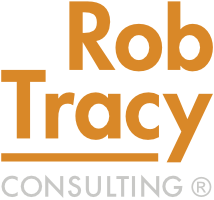Old habits are hard to break. When I was 40 years old, I had Lasik surgery on my eyes. After three decades of wearing glasses every day, I could suddenly see without them. But my old actions persisted. For six months after the surgery, I would go to bed and reach for my face to remove my glasses and then seek them again in the morning. The daily habits associated with my glasses were deeply ingrained, they were part of my everyday life.
We perform many habits in our personal life, but of course we run into them at work as well. For example, perhaps there was a company that had a long-time CEO who was also the founder, and he managed by making all of the decisions himself. Over the years, everyone in the company learned that the way to get a decision was to take it to the CEO. Then one day the old CEO retired and there was a new leader who wanted people to take initiative. She wanted them to engage in and own their decisions. She wanted creativity and innovation.
In cases like this, the new CEO often starts to lament that she inherited a workforce that lacks ambition and doesn’t “get it.” She pulls out her bag of change management tricks. She describes all of the positives of the new way of working, and she warns them of consequences of not learning the new way. These efforts start to move the needle, but it is happening slowly. She wonders why people are so resistant to the change.
Perhaps in this context, the resistance to change is merely the inertia of old habits and patterns that need to reform.
Do you find yourself struggling to make new habits as you learn to work from home and social distance restrictions imposed by COVID-19? For me, the patterns are getting locked in but are far from routine. I still feel myself reaching for my glasses.
So how can we break out of old patterns and intentionally develop new habits? The best way that I know is to repeatedly perform the new behavior. At first, it can take a lot of extra effort to consciously not do the old habit and practice the new one. But over the course of months, that new behavior slowly morphs into your regular action. It’s important to remember that while new habits are forming, people need encouragement and coaching. There needs to be forgiveness for lapses, complemented with adjustments to get back to the new behavior. This is true for your personal habits and nurturing the new habits of others.
Going fast seems to be the American way in business. I know that I’m wired that way, although I have to admit that my red-line tendencies have moderated as I’ve matured. Perhaps the relatively low success rate of many change initiatives is because we haven’t allowed for the natural time, energy and reinforcement mechanism to build new habits. It’s something to consider as we all find new habits for the ways we live and work. Just remember it takes time, and that’s okay.
If you’d like to discuss this further, please reach out to me:
Phone: 651-398-9280
Email: rob@robtracy.net
Contact page: https://www.robtracy.net/contact/
